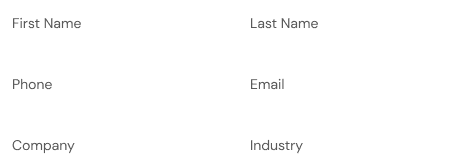Working remotely is becoming a more and more popular choice for employers, employees, and even students. As of now, about 52% of the global workforce are now working in the comfort of their home. Still, there are a lot of questions people have about the remote setup including its effectiveness for businesses. Some are also questioning how employees can successfully manage their workload and stay on top of deadlines when they have no in-person contact with other people.
As this trend continues to grow, so does the number of myths surrounding it. In this blog post, we will debunk 7 common myths about remote work.
Myth #01: Employees Cannot be Productive In Remote Work
While many people believe that employees who work from home are less productive, studies actually show the opposite. A study supports that remote workers make better use of time and resources because they have fewer distractions than their office counterparts. Remote work frees people up from the distractions of being cooped up in an office, so they can focus on a given task and while maintaining a fun work from home setup. This is as opposed to an -office setting where employees are constantly interrupted by co-workers, phone calls, meetings, and other distractions.
Myth #02: Working Remotely Means Losing Company Culture.
Indeed, many remote companies do not have an office culture because they can’t rely on in-person interactions to build employer relationships. While most companies find it a challenge to maintain company culture remotely and a fun work from home setup, some companies have found ways to keep their company culture alive and well while still allowing employees to work remotely. Some of these methods include video chats for team meetings, regular emails or newsletters with timely updates on what’s happening at the office (or reminding people about deadlines), and other creative ways to keep people connected.
Today, team building is now possible even though done digitally through fun activities like live movie streaming through video calls, having lunch together, and having after-work socialisations.
Myth #03: Remote Work Careers Means No Engagement with Remote Workers.

This isn’t true at all. Despite not having physical interactions with their employees, there are still plenty of ways to connect with each other through various digital means. This means that employers often come up with creative solutions for engagement. It includes having regular video calls and team chats that can show how genuine people are and share their experiences while in a remote work setup.
By setting regular catch-up meetings, you can encourage your remote workers to share their stories and what they are up to in their personal lives. It creates a stronger connection within the organization and even promotes employee retention.
Myth #04: Remote Work Limits Training Opportunities.
Employers often have the misconception that remote workers are not given as many opportunities for training, but this is untrue. Remote work actually gives employees more time to study and expand their knowledge base as they don’t need to waste their valuable time on traffic and commute. There are also a lot of online seminars, courses, and training that employers can offer to their employees.
Myth #05: Remote Work Kills Career Advancement.
This is another myth that just isn’t true. Remote work actually allows employees to upskill and advance their careers. Some of the examples are taking on management positions or becoming a team leader as these roles are not actually limited to physical interactions and having to work in the main office. Working remotely can benefit your career, so long as you’re employed by a company that rewards those who take initiative and acknowledge hard work.
Myth #06: Remote Work is for Techies and Gen Z's.
This myth is a little more complicated. On one hand, remote work can be seen as the ultimate employer perk for techies because they can do their job from anywhere in the world and not have to deal with the usual, time-consuming office routines such as commuting. This means that employers are also attracted to this type of employment model because it saves them the cost of office space or other employer resources.
Moreover, according to Global Workplace Analytics, people who are 45 years or older and have a work-from-home setup earn a lot more than office-based employees. As technology advances, older people have actually found a way to adapt to it and use them for their livelihood and work.

Myth #07: "I'll Lose Control."
This is a myth that has no basis in reality. The employer actually gains control with remote work because they can take the lead on their employer-employee relationship. They can dictate the performance metrics to be met or surpassed for an employee to receive benefits like bonuses and career advancements. They have the final say on how things are done, by when, and how often. Losing control over employees is sometimes shadowed by the idea of not being able to see employees physically. However, so long as there are key performance indicators set, regular performance reviews, and a proper support system in place, keeping control should not be a problem.
Final Takeaway
Employers need to stop believing the myths about remote work and find ways to make it a success. After all, it is more than just a cost-saving strategy but also an effective way to improve the productivity and retention rate of competitive employees. It also offers freedom and flexibility for remote workers as they don’t need to allow a large amount of time for preparing and traveling to work saving them time and effort.
But, if you are already interested in getting a remote team, Remotify can help you simplify your outsourcing process. We offer Employer of Record services like legal compliance, HR task management, payroll management, and team engagement.
With our EOR services, you gain complete control over your employees’ day-to-day tasks unlike other outsourcing solutions. This means that you can discuss and come up with the best schedules and key performance indicators that will work for both parties. We also help companies and remote workers engage with each other and build a better company culture through our Team Engagement Service.
To know more about our other services and how we can help, Book a call with us.
Jump straight to a key chapter
Spending Too
Much Time
Onboarding?
your remote hiring in the
Philippines, excellently.
Say Goodbye to High Costs!
Request Your Free Consultation Today andSave a Massive 70% on Your Workforce!

Ready to thrive in a remote-first work environment?



